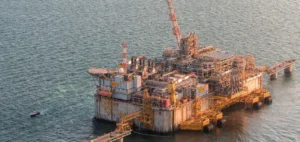In the Philippines, Kamala Harris wants to strengthen economic and investment relations through climate action.
A strategic cooperation
The Philippines and the United States enjoy an alliance and partnership based on historical and economic ties. Thus, the Vice President’s trip is a continuation of this bilateral alliance. The objective of this visit is to stimulate cooperation around the promotion of clean energy and the fight against climate change.
The U.S. and Philippine Departments of Energy will establish a dialogue on energy policy. The objective is to allow both countries to develop new forms of energy cooperation. For example, the Philippines and the United States will discuss energy planning,offshore wind development and grid stability.
The United States would like to launch the negotiations of the 123 agreement for cooperation in the field of civil nuclear energy. The two countries aim to establish broader cooperation while ensuring non-proliferation. Once in force, this agreement will provide the legal basis for U.S. exports of nuclear equipment and materials to the Philippines.
Through the U.S. Trade and Development Agency (USTDA), the United States will support a nickel and cobalt processing facility in the Philippines. Production will increase by 20,000 metric tons per year. The project will advance the sustainable development of minerals essential to clean energy transition technologies.
A stronger American presence
Next, they will partner with the Philippine energy company Energy Development Corporation (EDC) to develop a geothermal project in Mindanao. The benefits will expand the Philippines’ access to clean energy, emissions reduction, and energy diversification. In addition, the initiative will lower energy costs for consumers.
In addition, USTDA will open an office at the U.S. Embassy in Manila to assist U.S. companies and financiers in investing in the Philippine market. Thus, collaborative partnerships with local and U.S. financial players will secure USTDA’s current pipeline of bankable projects. Finally, the United States wants to develop smart and secure ports in the Indo-Pacific.
In an effort to mitigate cybersecurity risks, it will also promote the use of trusted vendors. Indeed, this recourse will guarantee the installation and maintenance of digital and automated port infrastructures. Development will increase as ports modernize and become “smarter” and “greener”.
Finally, the U.S.-Philippine alliance is based on U.S. geopolitical issues and Philippine modernization. The United States is strengthening its network of allies around China through alliances. The United States is thus strengthening its presence in the Indo-Pacific region.






















